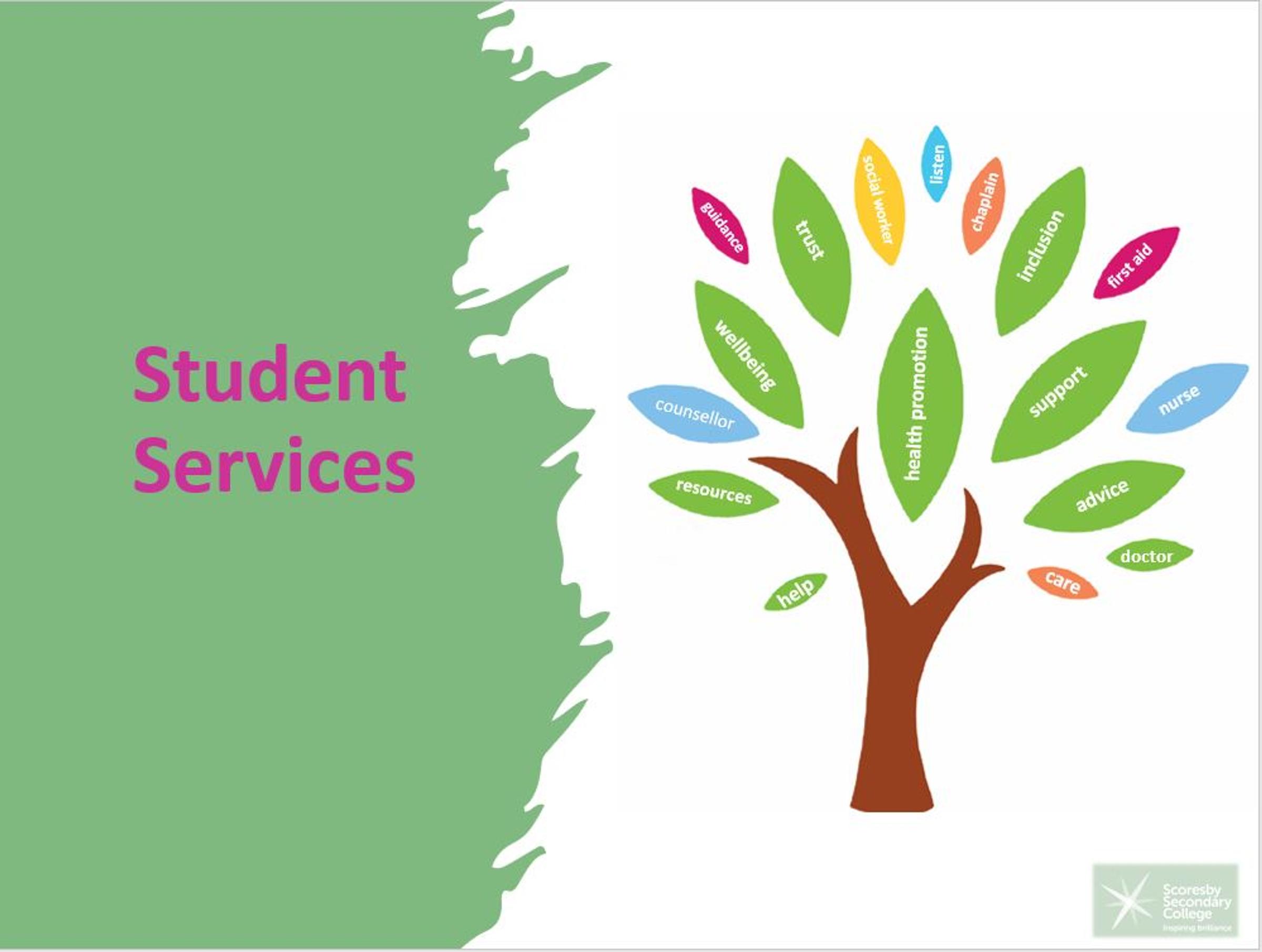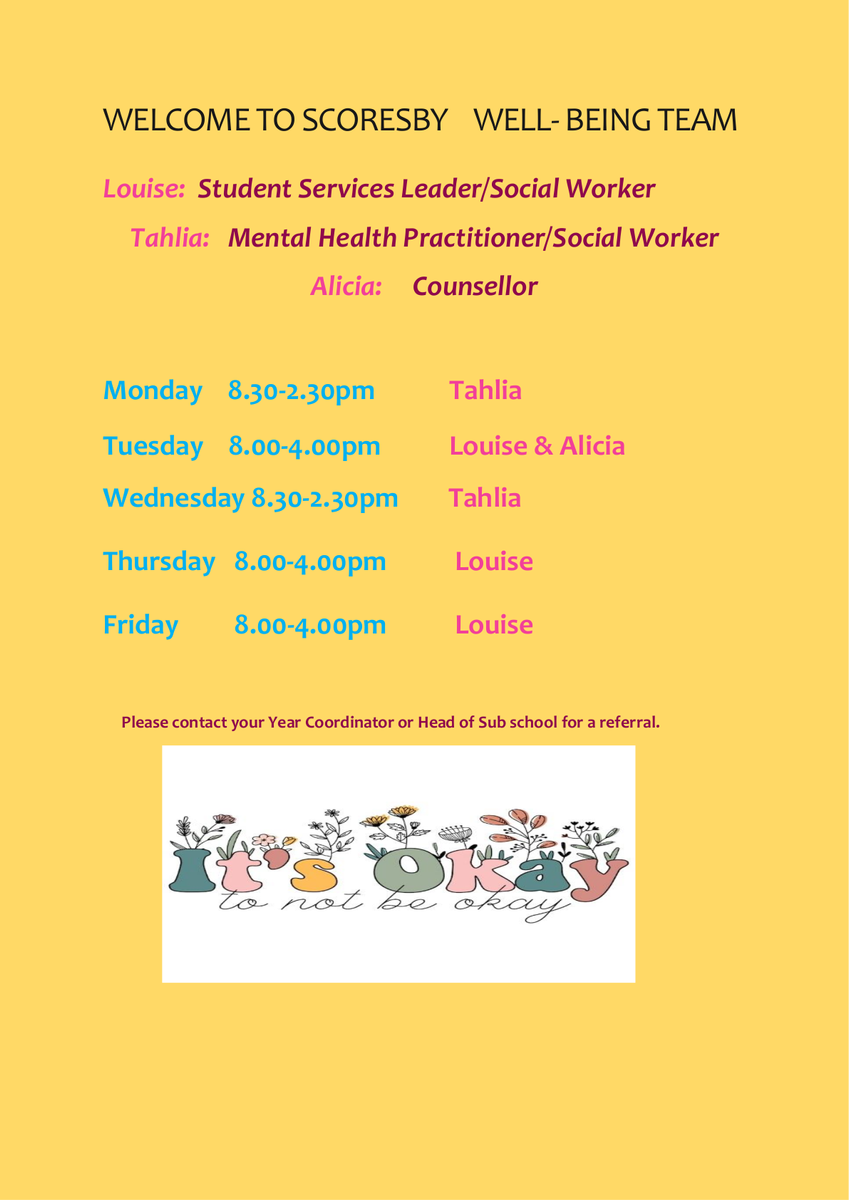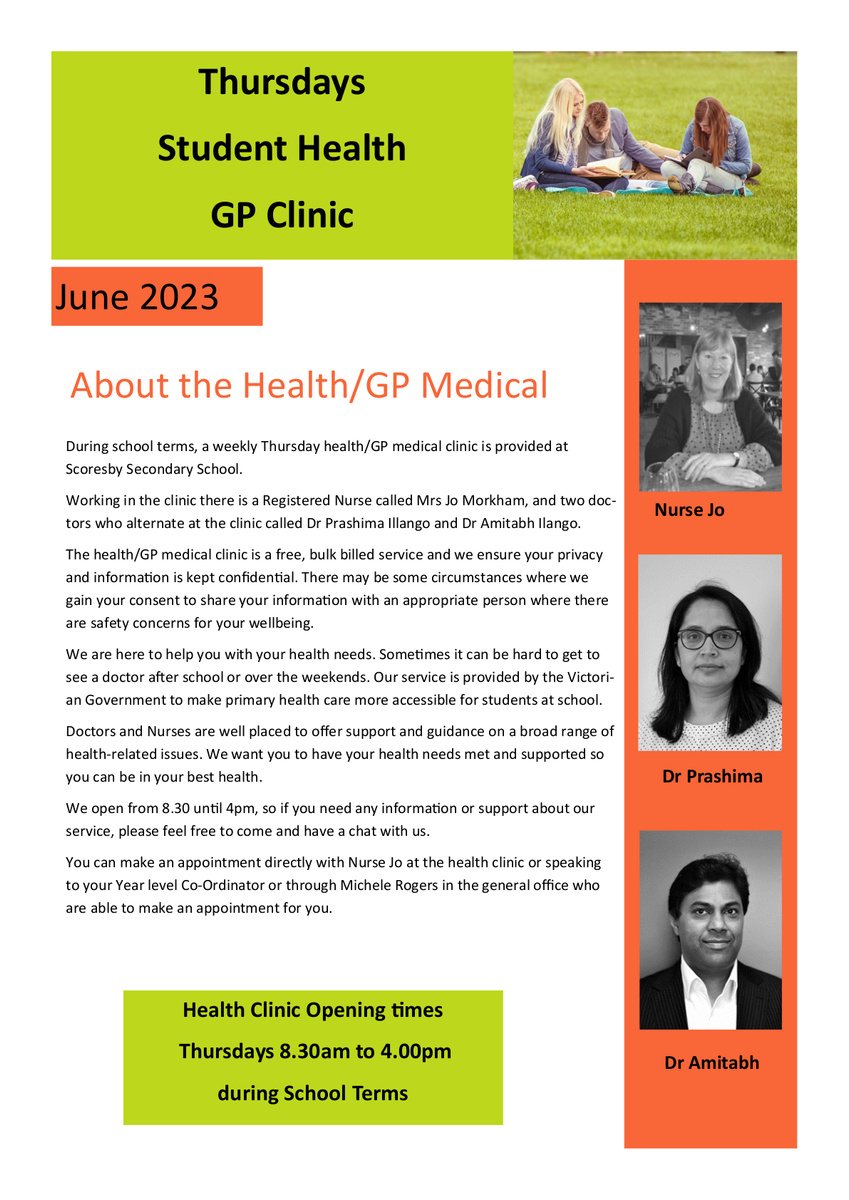Student Services

Welcome Back
Welcome back to term 3. We hope you have had a restful, fun and safe break.
Starting a new school term can create a whole heap of feelings.
Happy or sad, excitement or stress. These are just some emotions we may experience.
- Emotions Can Motivate You to Act.
- Emotions Help You Avoid Danger.
- Emotions Can Help You Make Decisions.
- Emotions Help Others Understand You Better.
Emotions are a normal part of us. There is no right or wrong emotional way to an emotional trigger. It is how we manage our emotions which is important.
If you are struggling, we can help you make sense of your feelings and help develop tools and strategies to cope. Remember it is OK not to be Ok.
Mrs Louise West
Wellbeing Leader
Doctors in Schools Newsletter
Stay Well This Winter!
In Victoria, influenza (flu) and respiratory syncytial virus (RSV) infection numbers are high among children aged 5 to 11 years, particularly in those in their first few years of school. The Victorian Department of Health expects more respiratory infections over Term 3.
Most children with flu or RSV have a mild fever, runny nose, or cough. Some children, particularly babies and children with underlying medical conditions, may have more severe illness.
Keeping our School Community Well
Parents, carers, and students are encouraged to:
Wash and sanitise their hands regularly.
Avoid touching eyes, nose and mouth with unwashed hands.
Cover their nose and mouth when coughing or sneezing.
Stay at home if unwell and consult a general practitioner (GP) or NURSE-ON-CALL as needed.
Stay up to date with flu and COVID-19 vaccinations.
Our school has masks for staff, students and visitors if they want to wear them.
Flu vaccinations
Vaccination is the best way to protect yourself and your family from getting the flu.
Annual flu vaccination is recommended for everyone aged 6 months and older. As part of the National Immunisation Program, it is free for:
Aboriginal and Torres Strait Islander people aged 6 months and older.
Children aged 6 months to under 5 years.
People aged 6 months or older with underlying medical conditions.
Flu vaccinations can be booked through GPs, pharmacies or your local council immunisation service.
For more information about staying safe this winter, refer to:
Stay well this winter on the Better Health Channel, translated into 16 languages.
Influenza and immunisation on the Better Health Channel
Respiratory syncytial virus (RSV) on the Better Health Channel
Getting vaccinated against influenza
Acne
Acne is a medical problem that causes outbreaks of blackheads, pimples, and cysts. The triggers for acne include some of the hormones associated with puberty and the menstrual cycle. Self help strategies include cleansing the affected areas, using water-based makeup, and resisting the urge to squeeze or pick at spots.
Cause of Acne
Acne usually begins in the teenage years and disappears after eight to ten years. Acne is caused by inflammation of the hair follicles. At the start of puberty androgen hormones are released into the body. Both boys and girls have androgens, but boys have more of them.
Androgens cause the oil glands in the skin of the face, neck, back, shoulders and chest to enlarge and to produce more oil (sebum). Bacteria that normally live on the skin surface digest the oil and by-products from this digestion irritate the skin, block the pores, and produce blackheads, pimples and cysts. Girls tend to reach puberty earlier than boys and develop acne at a younger age, Acne can become worse or “break out “at certain times of a girl’s menstrual cycle, usually just before a period. It most commonly affects the face, back and chest. In severe cases, acne may lead to permanent scarring. Acne can make teenagers feel embarrassed and bad about themselves. There are however treatments available to manage acne.
Self -help strategies for acne
- Cleansing – Using cleansers specifically developed for acne prone skin can help. Try washing the affected area twice a day, but not overdo it. It is important not to cause the skin to become too dry or irritated. Some acne treatments can be bought over the counter at pharmacies and supermarkets. These work by cleaning the skin and drying up the excess oil. It is a good idea to talk to a pharmacist before you buy a product to find out which treatment might be the most useful for you. A cleanser for acne-prone skin may be all that is needed for mild acne.
- Makeup- Choose water-based, oil free products where possible to avoid worsening acne by clogging the pores with oils or powder. Makeup should be thoroughly removed before going to bed.
- Don’t squeeze- Picking and squeezing pimples can make them worse and lead to scarring.
- Diet-There is some weak evidence that a low-GI diet (unprocessed) food may help some people with acne. If you notice any particular food makes pimples worse, it is best to avoid that food.
Treatment for acne-professional help available.
If your acne is not improving with over-the-counter treatments or if you have a more severe form of acne, you will need to see your doctor. Your family doctor can assess your acne, determine if you are developing any scarring and prescribe treatments specific for your type of acne.
- Your doctor can also prescribe retinoid creams, antibiotic creams, and antibiotic tablets, which may also work to prevent new pimples from forming. In general, the benefits are first seen after six to eight weeks of daily use.
- The doctor may also refer you to a dermatologist for assessment and possible prescription of medications where other products have not helped improve the acne. Dermatologists may commence some medical treatments that can include a range of topical or oral treatments such as retinoids, antibiotics, and hormonal agents.
- Medications can lead to significant improvements in how the skin looks and can reduce the number of new pimples.
- It is important to remember that acne is a medical problem and if self help strategies have not helped to seek more information from a pharmacist or doctor to discuss other possible treatments.
- If you have any further questions about acne, feel free to come and chat with Nurse Jo or GP Prashima in the school clinic open on Thursdays at Scoresby Secondary School.
Mrs Jo Morkham
Nurse - Doctors in Schools




